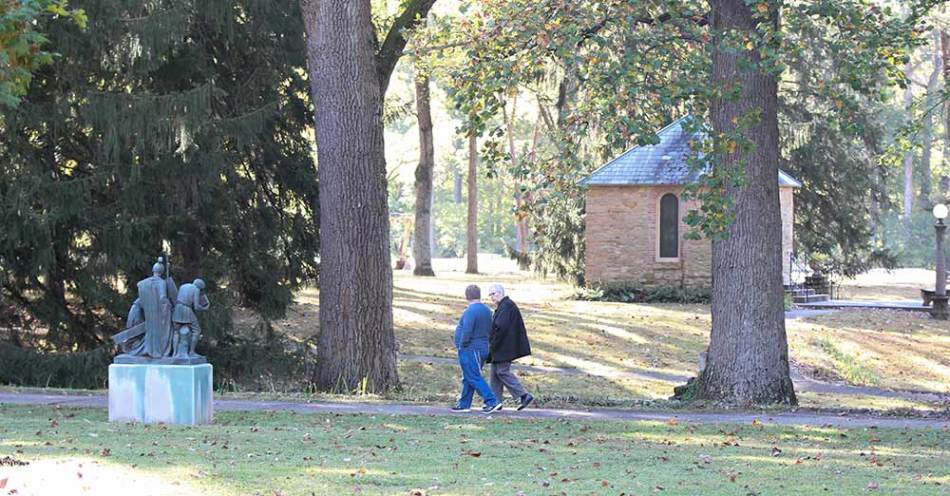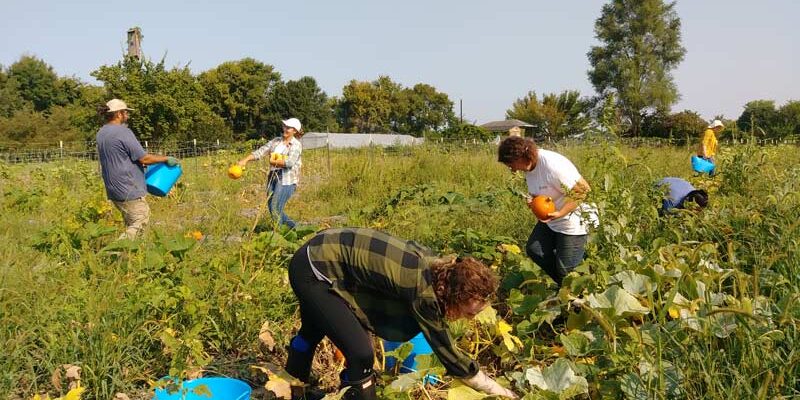Ash Wednesday: The ‘Black Friday’ of the Church year
Great deals will do it every time. People line up, compete for parking spaces, push through crowded entrances, try to get their spot in line to make sure they get an item that is being practically given away. We call it Black Friday. Why does anyone put themselves through this kind of thing?
Because — for the most part — we have a certain anticipation of seeing the joy of loved ones when we present them with a nice gift at Christmas. We can buy more things for less money, making more people feel special, if we sacrifice a little bit of ourselves this one day. Except that we don’t consider it sacrifice. Quite the opposite; we’re saving money and seemingly sacrificing less. That feeling stays with us because there’s usually a sense of completion.
For many faith communities, today, Ash Wednesday, is akin to a spiritual Black Friday. Having been “seasonal help” for this many times and survived, I’d like to share some thoughts from the front lines.
Ash Wednesday’s pull

Encyclopedia Britannica online states, “Although Ash Wednesday is not a Holy Day of Obligation, it is traditionally one of the most heavily attended non-Sunday Masses of the liturgical year.” It seems we want to go.
I’ve heard speculation that the attendance surge is because the Church is giving something away. But I don’t accept this proposal. What we receive is literally dust and ashes — a small and insignificant thing. It’s not something I’d go into a consumeristic battle over. Still, more churches burst at the seams today than just about any other time. And almost as abruptly as the hordes arrive many disappear again.
What are we seeking?

So, why is this day so popular? Lent stirs a response to a deeply felt desire to offer some sacrifice of our own. And yet we make “sacrifice” into many things it doesn’t have to be. So we’re left a little uncertain and incomplete. Sacrifice, we think, (aside from possibly being icky, old-fashioned, unnecessary, unfair and lacking in self-care, among other things) needs to be grand and complex — usually with a clear start and finish. We long for a way to express what we believe and hold in our hearts. It’s the yearning that Psalm 63 describes: “O God … for you I long; for you my soul is thirsting. My body pines for you like a dry, weary land without water.” In short, by thinking this way, we may miss out on seeing sacrifice as synonymous with a sign of love. Perhaps it is Love which we seek and for which we long and yearn.
Consider that it’s hard-coded within us to do what Jesus said was the greatest commandment: Love God and love your neighbor. Somewhere along our day-to-day of life, we tend to forget that. Or we pick up all kinds of reasons to isolate ourselves from experiencing it. Then, Lent comes around and reminds us to re-center ourselves in that Love.
Relationship with the Divine

People of all faiths, the so-called fallen away, the “nones,” come into churches during Lent to take advantage of a great deal. We desire relationship between ourselves and the Divine and long for that love to be made real in our lives. Many times, though, individuals can’t pinpoint a reason for being nudged in that direction or even name this desire for what it is. They just feel like it’s something they need to do. The descriptions we get often reference “returning” — to a particular tradition they grew up with, to the self they wish to be, to the practices they want to pass on to children or just a familiar way to cement a resolution — at least for a time.
Sometimes, the liturgical action, in this case receiving ashes, expresses what we struggle to find words to express on our own. Even when we know we’re pulled toward a journey, we may have no idea what direction to take or where the path even is. We think we know the goal — preparing ourselves for Easter.
What are you giving up?
“What are you giving up for Lent?” we ask each other. A response like, “I’m giving up coffee,” (heaven forbid) doesn’t articulate the real purpose in my heart for the sacrifice I want to make. But the question is another sign of our longing. And, we don’t want to walk the road to Divine Intimacy on our own but desire to share the journey with others. Rory Cooney’s hymn puts it best:
“We have set out hearts for the way;
this journey is our destiny.
Let no one walk alone.
The journey makes us one.”
We’re called to something and may not quite know how to name it or describe the “why.” The added challenge to lacking words for this calling is that we think our response needs to be grand and complicated, hence my giving up coffee feels inadequate.
Community and prayer
One of the greatest blessings for my becoming a Providence Associate was to discover how simple, small things have a tremendous impact. Another blessing was finding out how our simple, small things come together in the Providence Community to have that grand and complicated impact in an uncomplicated way. Not only do I get to renew and reinvigorate my relationship with Creator but also with creation, but I find it is so much easier to do when you don’t have to do it alone. And undeniably, Providence makes the path clearer as we go.

My prayer routine (I strongly recommend a prayer routine) used to be elaborate and complex. Today, my prayer routine is less about maintaining a strict schedule for the Divine Office (which I still find beneficial) or a litany of rote prayers. My routine hinges upon the ability to spend time quietly reminding myself of God’s presence in and around me. This happens in Eucharistic Adoration (a great practice to explore), using daily meditation guides or lectio divina or just shuffling the cards around on my iPad solitaire games (not a form of prayer you might have thought about, right?). Anything that quiets my mind and gives room for God to speak works well.
Letting go
The other practice I’ve recently taken up is letting go. Perfectionism, or the idea that I needed a certain expertise in order to share, often stopped me from engaging in collaborative activities that could have a meaningful impact on others. Now, I’ve purposefully started reflective journaling where I do not allow myself to edit or make corrections. And while that has no obvious connection to doing good for the world, this practice has carried over to drive instinctive and thoughtful, but not perfect, action. For example, I just learned that spending 30 minutes a week in conversation — of any kind or quality — with a refugee makes a tremendous difference in their ability to successfully resettle. No expertise or perfection required. (Who knew?!) It’s the small things that make a true difference.
This Lent, I encourage you to look beyond the mysterious “why.” Don’t get wrapped up in the fact that we may not understand the fire kindled in our hearts. Don’t worry about living up to some ideal to keep it all going. Make small changes. Take a step in an unknown direction. Find others who are wandering about life like you are (they’re out there!). And if it begins to fizzle, try again.

Invitation to the Providence Community
The Providence Community is here to help you build a bridge between your now and your next step. We have programs and events. We have spiritual guidance to offer. And we have room for you to join us as a Sister of Providence, Providence Associate, or partner in mission. Whether any of that is for you or not, you will be in our prayers. Please pray for us, too. That seemingly small thing is much grander and more complex than we may ever know — it’s a great deal that doesn’t end.



Thank you, Brad! Wonderful thoughts to begin Lent!
That was a wonderful read. Thank you for sharing it with me
Having never participated in celebrating Lent, I especially enjoyed this glimpse into what it means to those who do.
“Only to do justice and to love goodness, and to walk humbly with your God.”
Anti-VAW Violence against Women Advocay and International Women’s Day 2022
Marked annually on March 8th, International Women’s Day (IWD) is one of the most important days of the year to: celebrate women’s achievements and raise awareness about women’s equality.